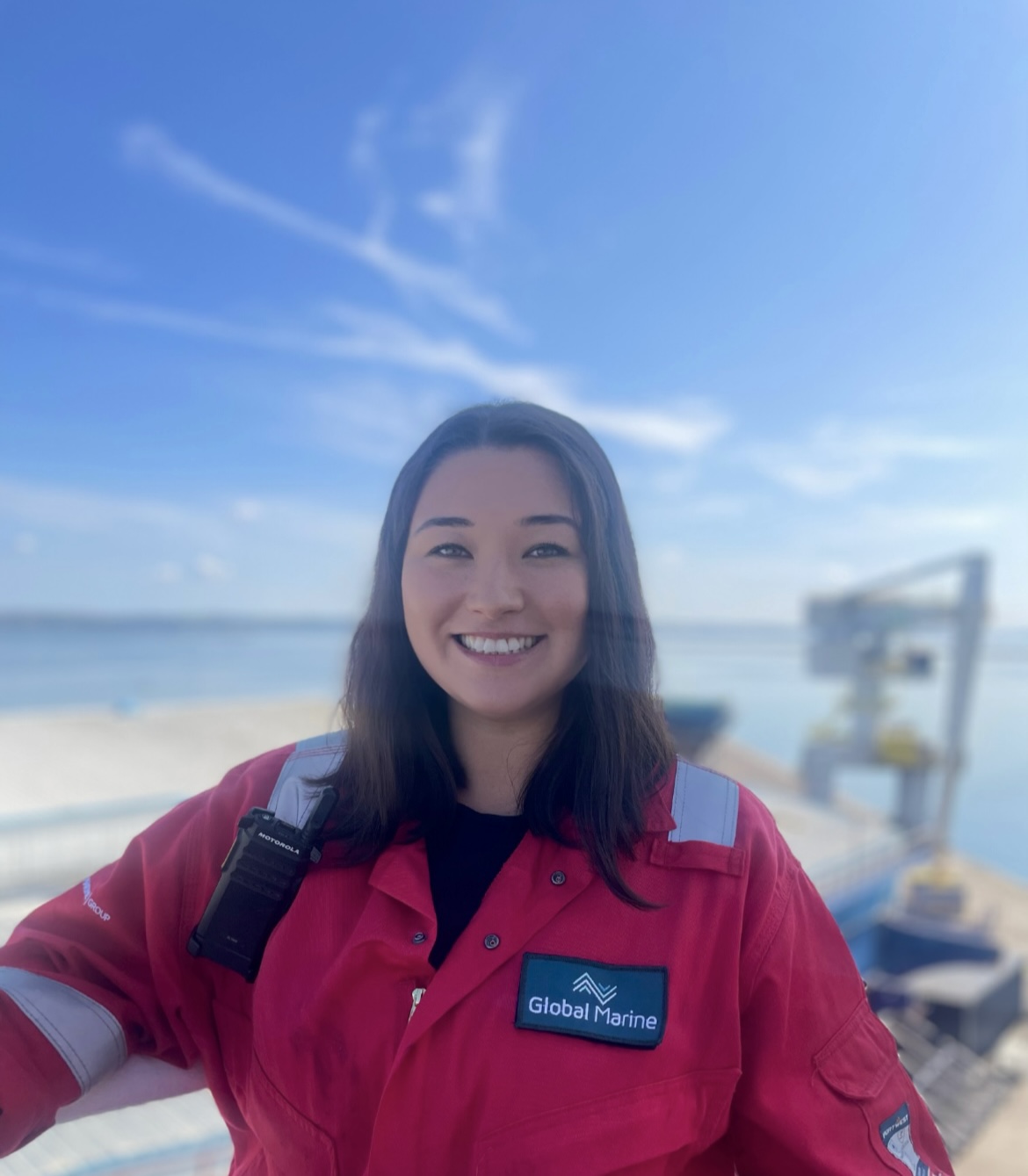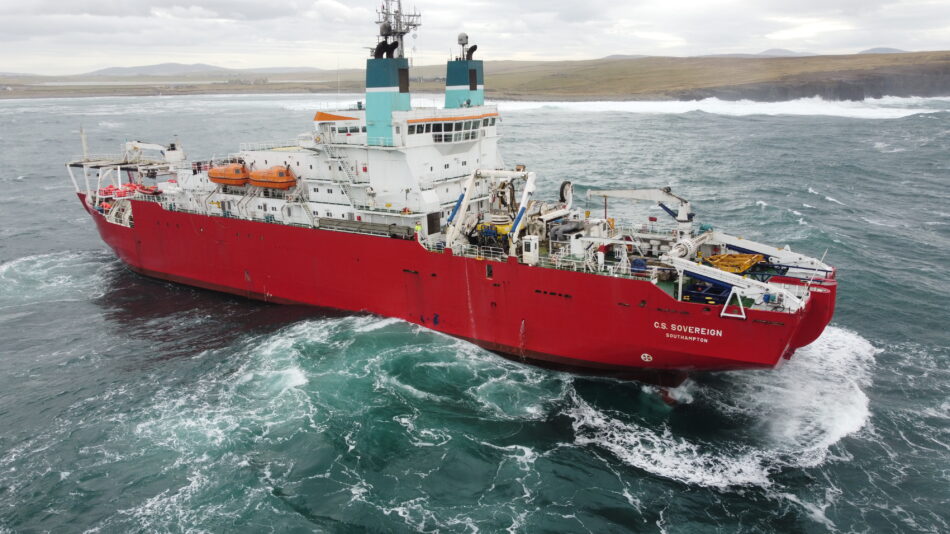
One of the oldest and most well-known maritime superstitions was that bringing women aboard a vessel was bad luck. Fortunately all that has now changed, and we’re firm believers in supporting growing diversity across our workforce across the globe.
We spoke to one of our Chief Officers, Kaya Teare, about life offshore as a woman, playing a critical role onboard a submarine cable ship.
Kaya is one of our fantastic crew members, currently serving onboard the C.S. Sovereign in Portland, England. She has eight years of qualified experience on cable repair and maintenance vessels with Global Marine. She has previously served as a Third Officer, Second Officer, and Deputy Offshore Installation Manager (DOIM) and plans to obtain her master’s ticket in 2024.
After completing her honors degree in navigation and maritime science, Kaya Teare took to the seas to work on cable repair and installation vessels. Having moved up the ranks from Deck Cadet to Chief Office, she is a strong advocate for reducing the gender gap and including women in all teams and departments, especially at senior levels.
I have always lived by the sea and near ports. I was born in Osaka, Japan, a major port, and grew up in Peel, Isle of Man, a fishing town. I enjoyed kayaking, camping, and sailing as a teenager and was looking for my next adventure. When I was 18, I was ready to leave the island, travel, and live independently. I initially thought I would take a year out to travel and work as a stewardess on a superyacht. My friends and family asked me why I wanted to be a stewardess, and I quickly realised I didn’t.
I started researching jobs at sea / cadetships and decided I wanted to be a deck officer. I liked the sound of a course that would have a year in industry, learning how to navigate, being sponsored, and coming out with a professional qualification to start my career. When I was applying for sponsorship, I wanted to work on cable ships because they sail worldwide, have many personnel onboard, and don’t complete routine passages.
I don’t come from a family of mariners and didn’t know anyone working at sea before I started. I didn’t consider that I would be the only women in lectures / courses or onboard the vessels. I was always surprised and wondered why more women didn’t want to do this as a career. With hindsight, I don’t think women fear taking it up as a profession: I think they don’t consider it an option. I was lucky enough to have people around me that questioned me and helped me realize that there are more opportunities for women at sea

I grew up with two different cultures, as I am half Japanese and half Manx. I have always enjoyed working with people of different cultures and backgrounds. It is interesting to see how different cultures range in their working methods and how they approach situations. I see it as an opportunity to learn and see something from a different perspective. I never expect to be accepted and respect others people’s views. I think simply by being there and doing what I do, it will show people who have never seen women working at sea before that it is possible. I think this is the best way of showcasing what women at sea can do.
I have seen many positive changes in the industry, especially in the last three years. I now regularly sail with other women, whereas in the past, I was mostly the only woman onboard. Also in recent years, personnel with strong traditional opinions have retired and more personnel accepting of all genders are onboard cable ships.
I genuinely feel the company and my colleagues have given me equal opportunity and fully supported me. There are, of course, some characters who are not as accepting, but I have found over time they adjust to the change that they are not used to seeing. I believe over time being a woman at sea will not be a novelty. There is room for more women to work at sea, and they should feel we